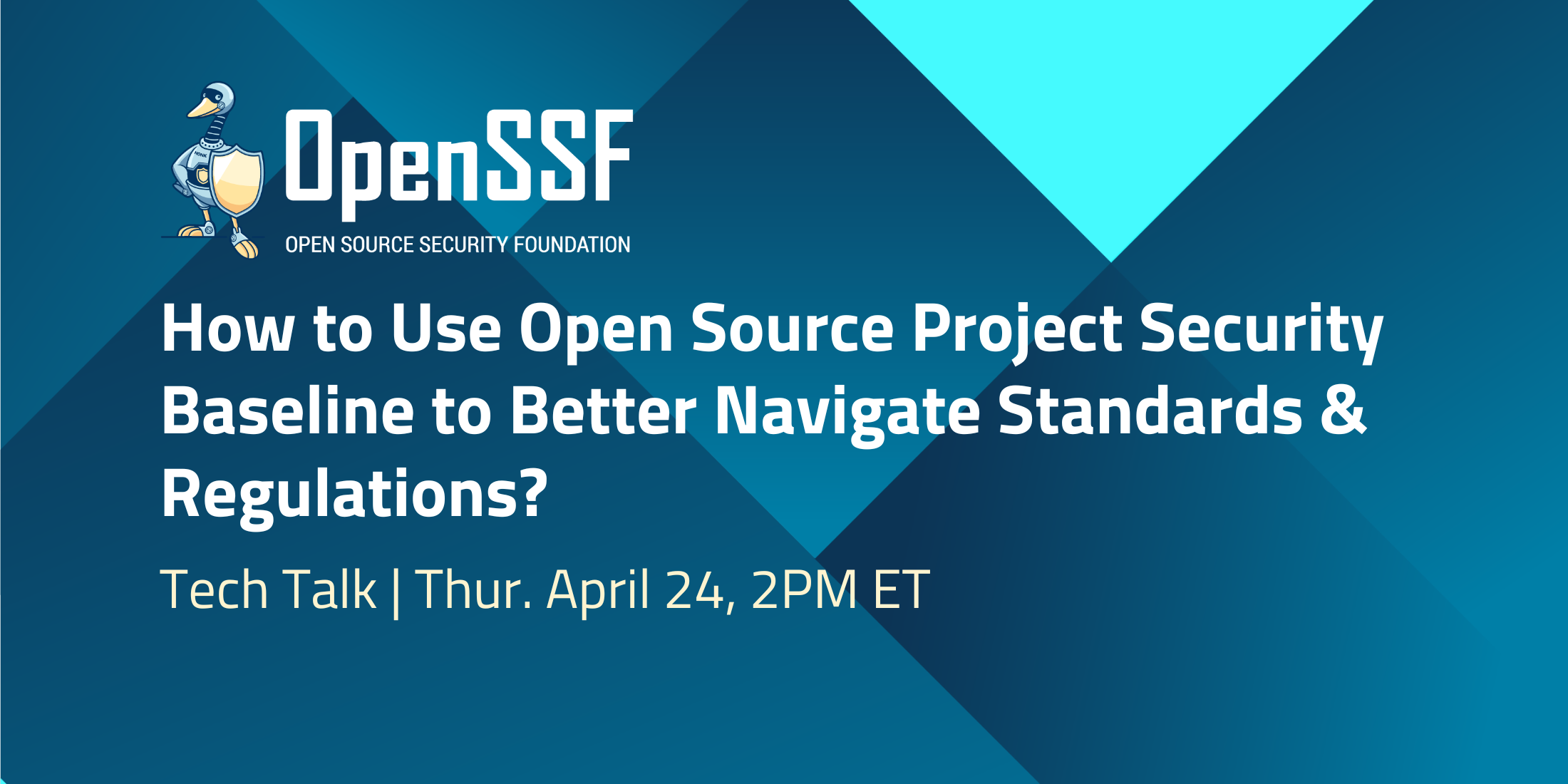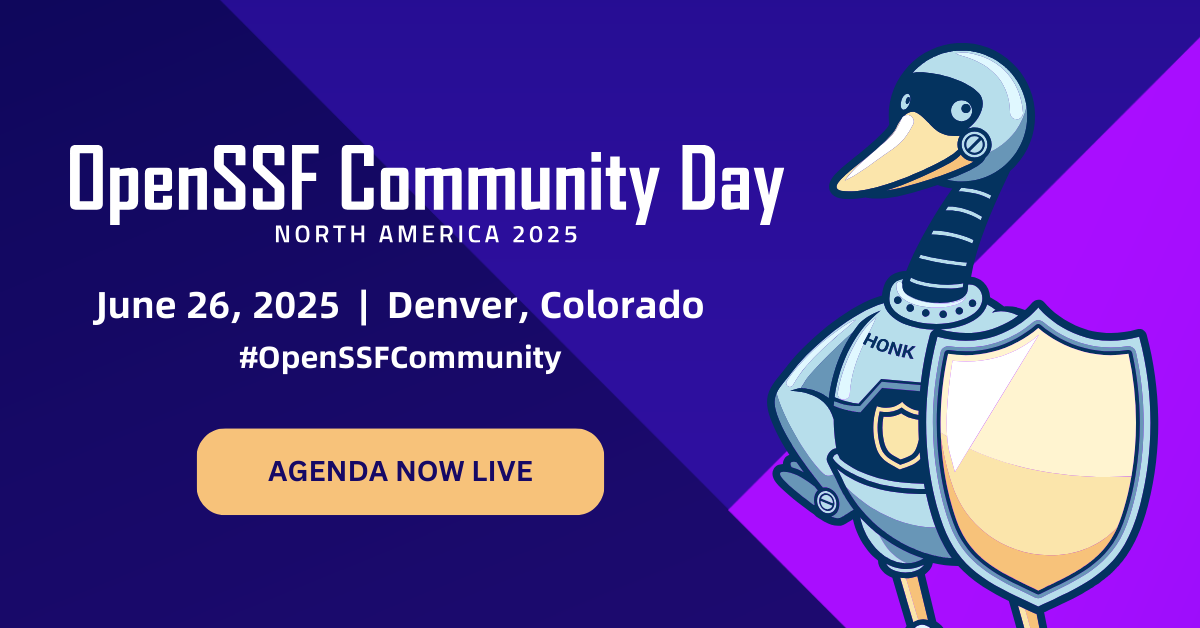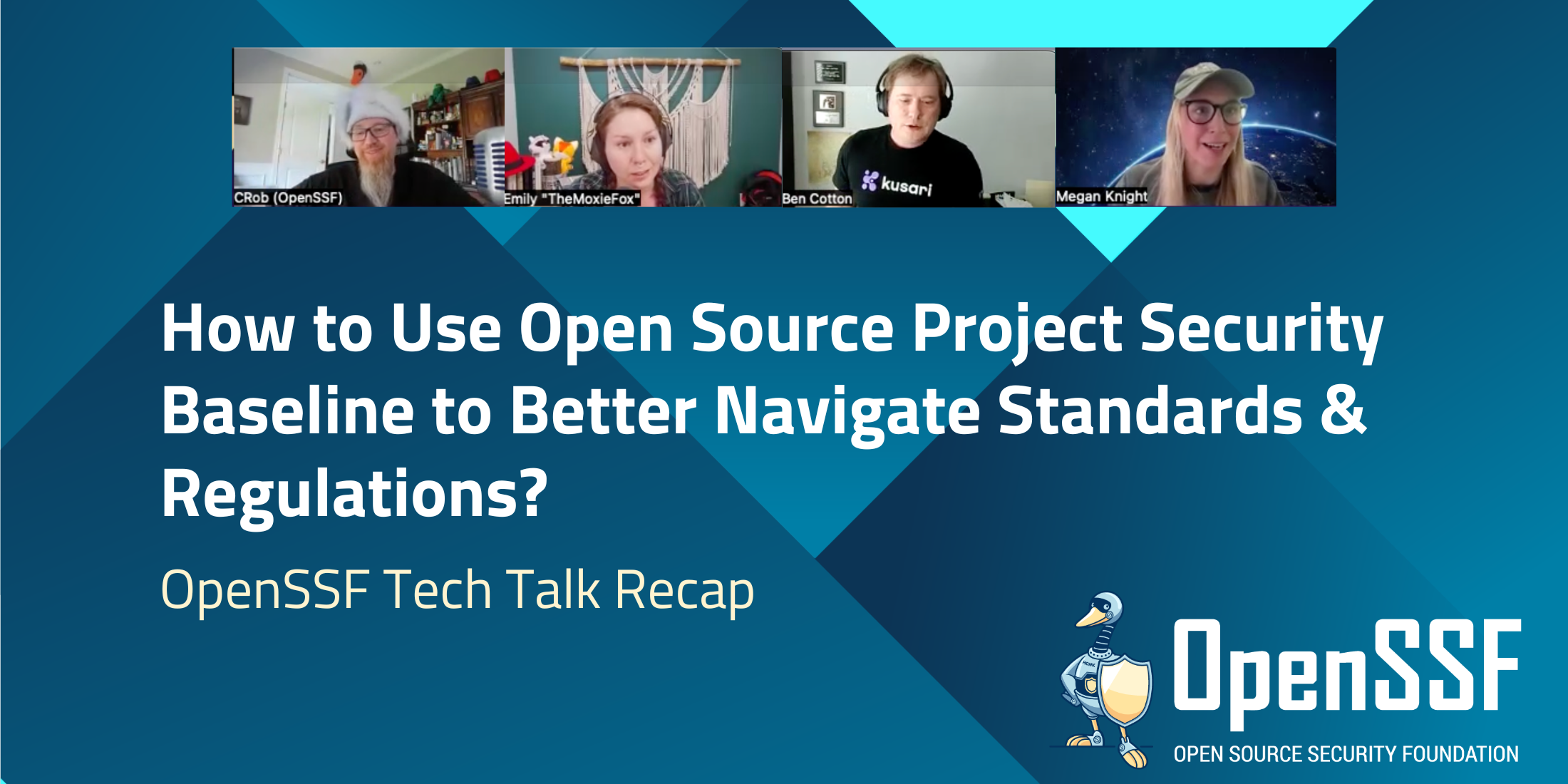


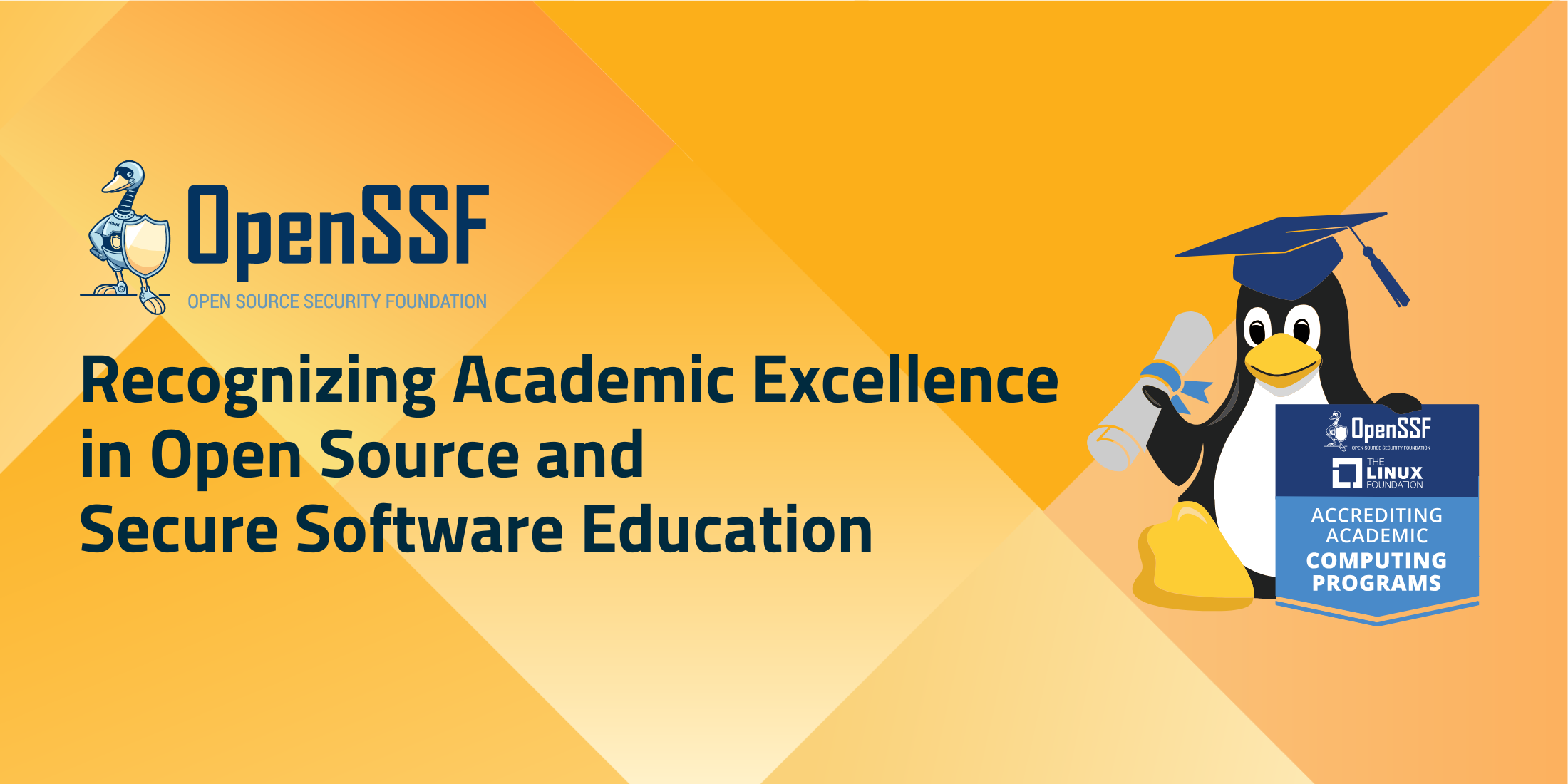
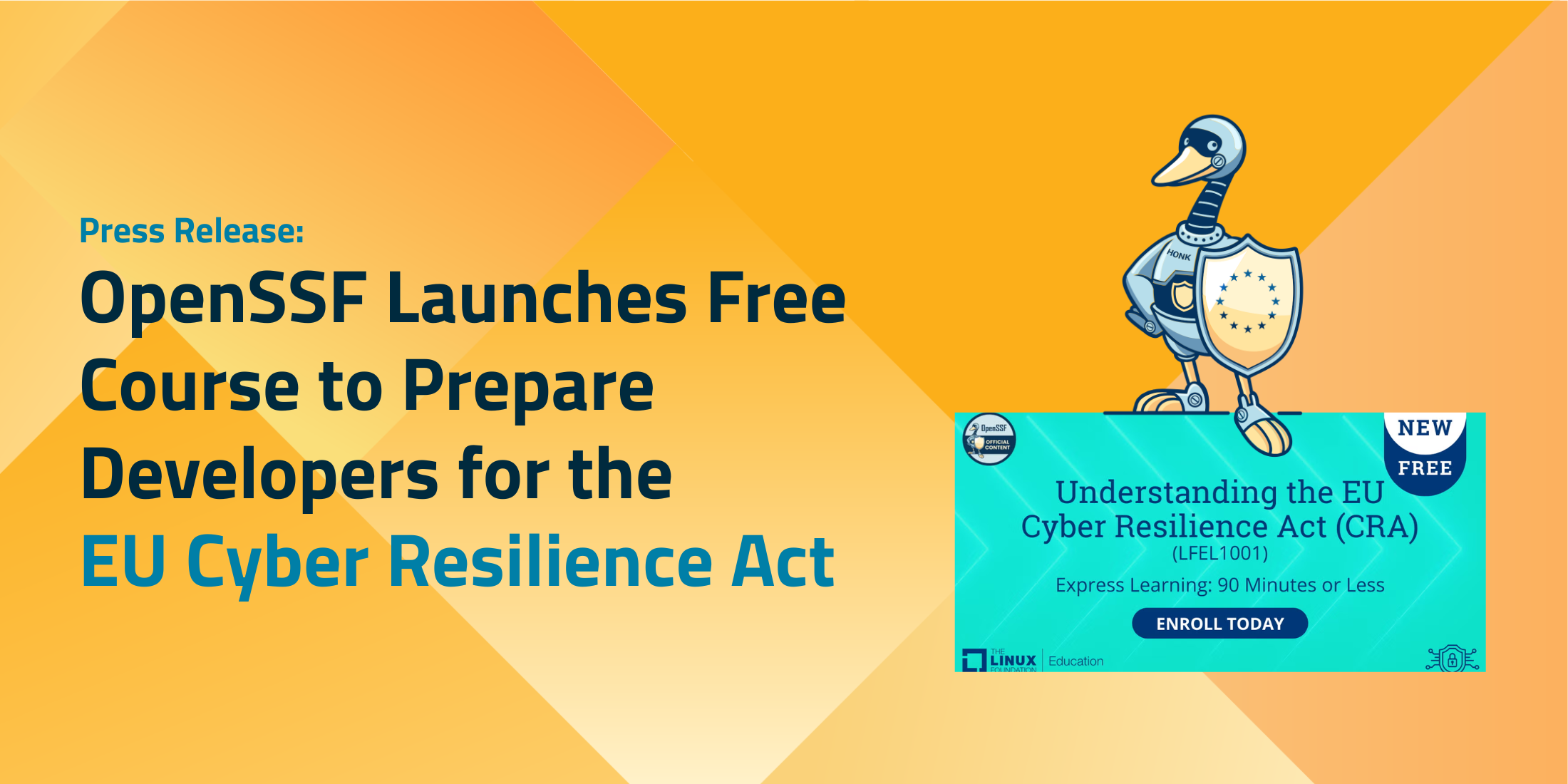
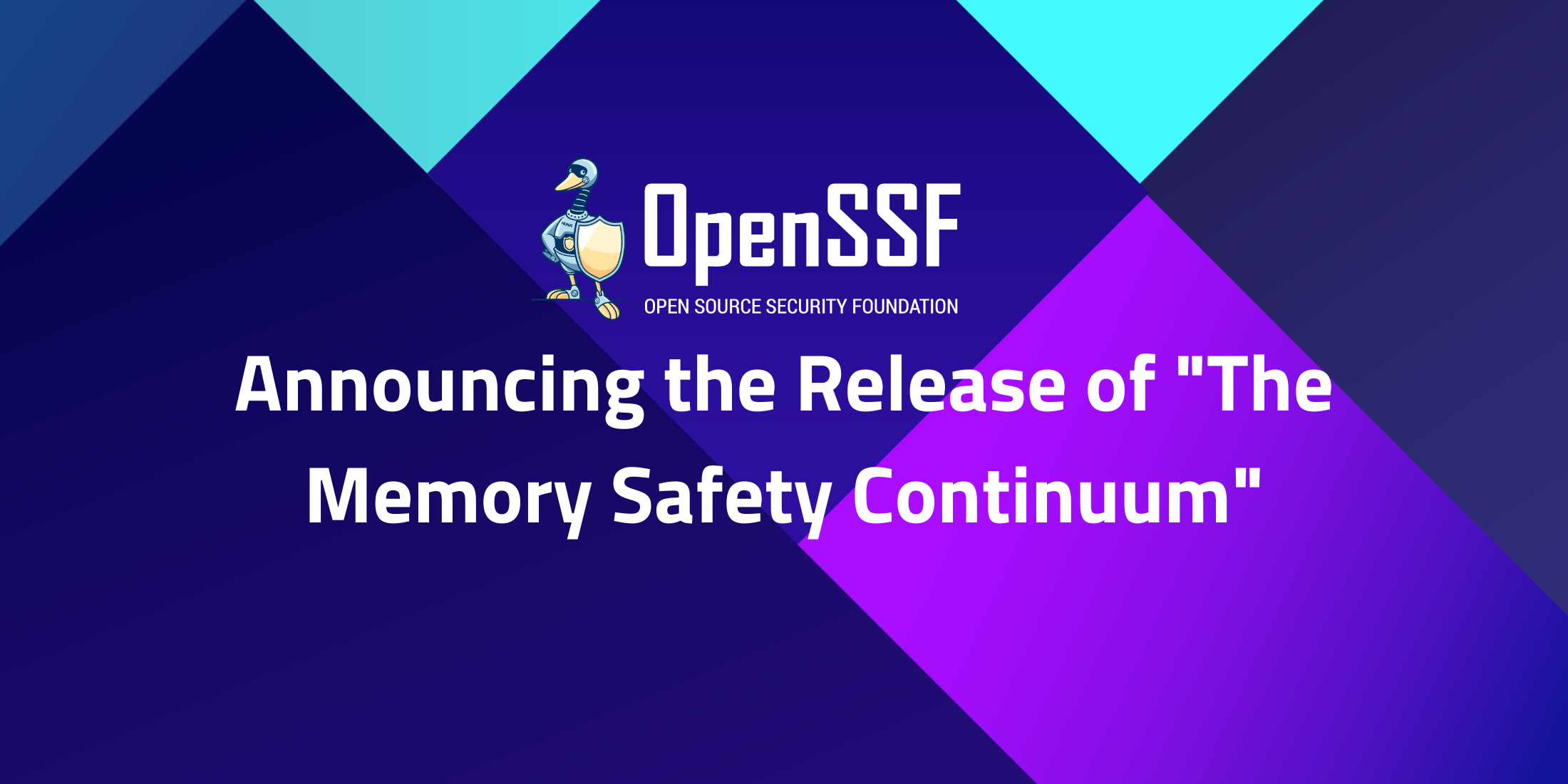
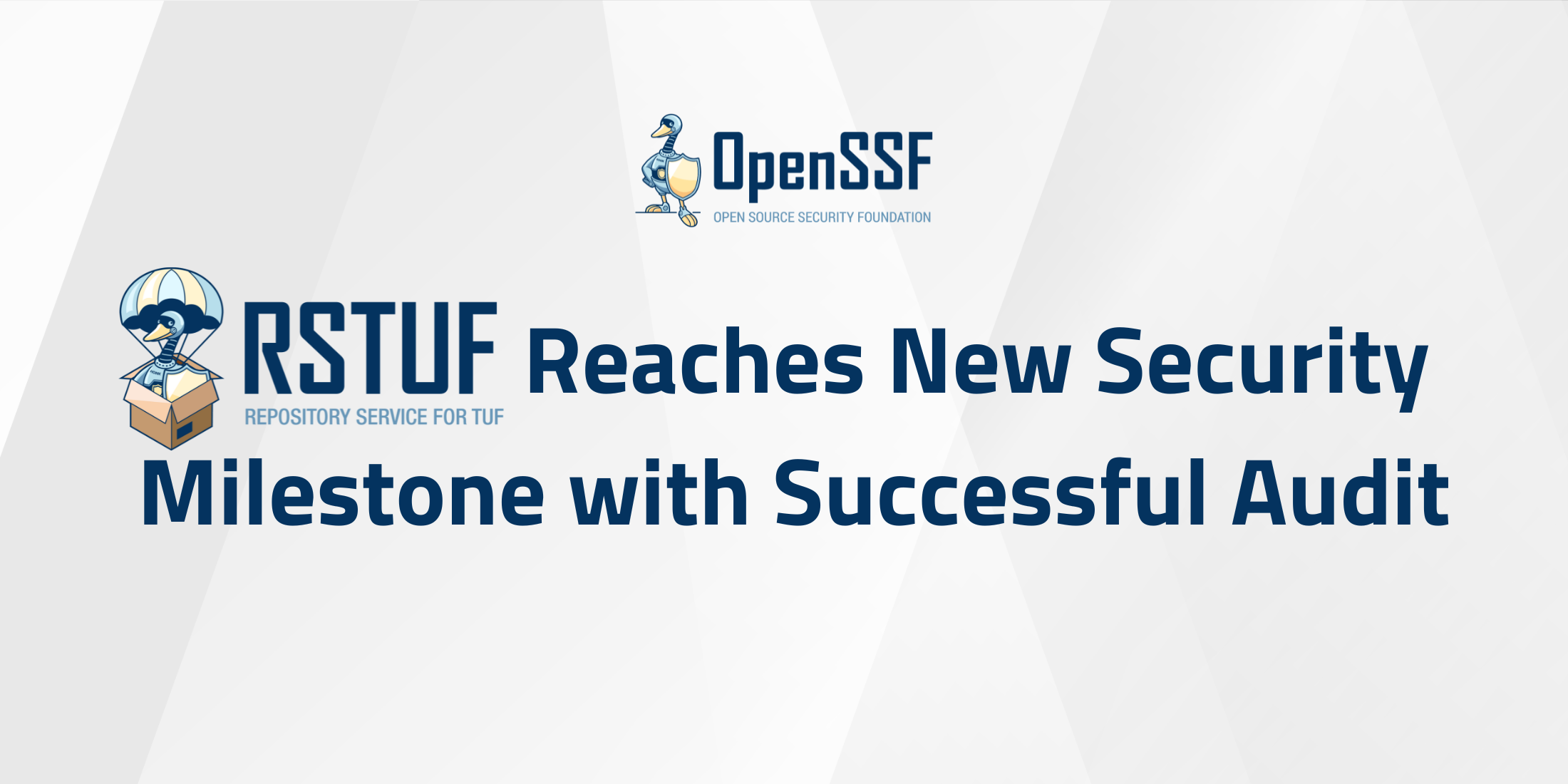
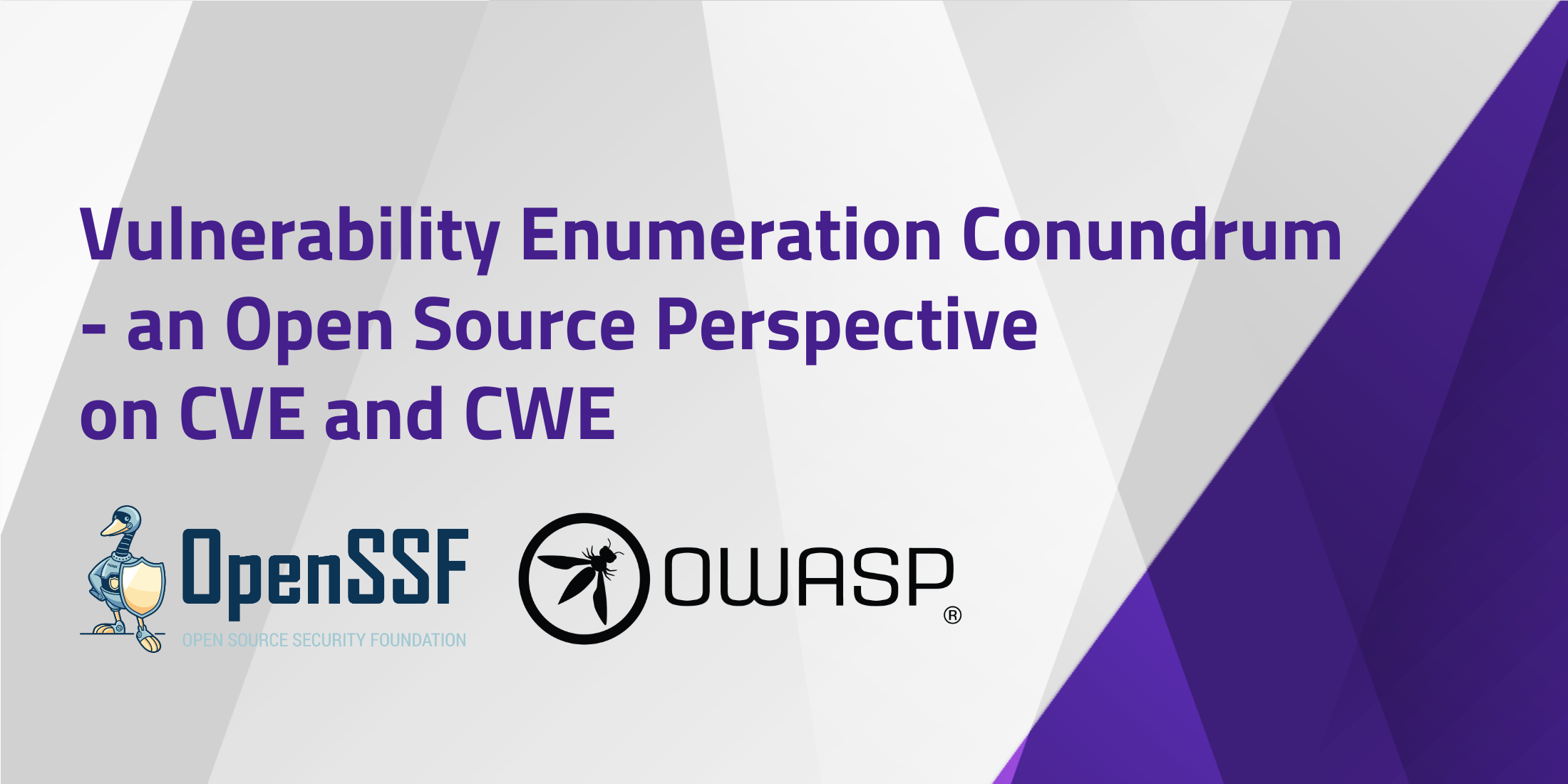

By Linux Foundation Education, see original blog.
OpenSSF and Linux Foundation Education have announced the launch of Understanding the EU Cyber Resilience Act (CRA) (LFEL1001), a new, free, Express Learning video course that covers:
The course is ideal for anyone needing to adapt to these new legal requirements, especially decision-makers and software developers – including those working with open source software – whose products may be commercially available in the EU.
“The Cyber Resilience Act (CRA) is critically important for all software developers and their managers to understand. It imposes requirements on many kinds of software, including open source, that have never been regulated before. The CRA applies even if the software wasn’t developed in the EU,” said David A. Wheeler, PhD, Director of Open Source Supply Chain Security, OpenSSF. “This completely changes the software development landscape. You could risk its substantial penalties, but it’s wiser to gain an understanding of it.”
The CRA is a landmark law that imposes new requirements on products with digital elements, including software, that are made commercially available within the European Union. It also imposes significant penalties for failure to comply in certain cases. Given the global nature of software and hardware development, many organizations and individuals not based in the EU will find themselves affected by the CRA.
Understanding the EU Cyber Resilience Act (CRA) (LFEL1001) will help those affected better prepare to understand and meet their obligations of the law and avoid the significant penalties the law can enforce. This includes the CRA’s requirements for developing secure software and managing vulnerability reports. The course will also note some of the uncertainties in the new law, explain how some are being addressed and provide recommendations on how to deal with such uncertainties.
Understanding the EU Cyber Resilience Act (CRA) (LFEL1001) is a free, 90-minute, self-paced, e-Learning video course. Those who successfully complete the course receive a digital badge and certificate of completion.
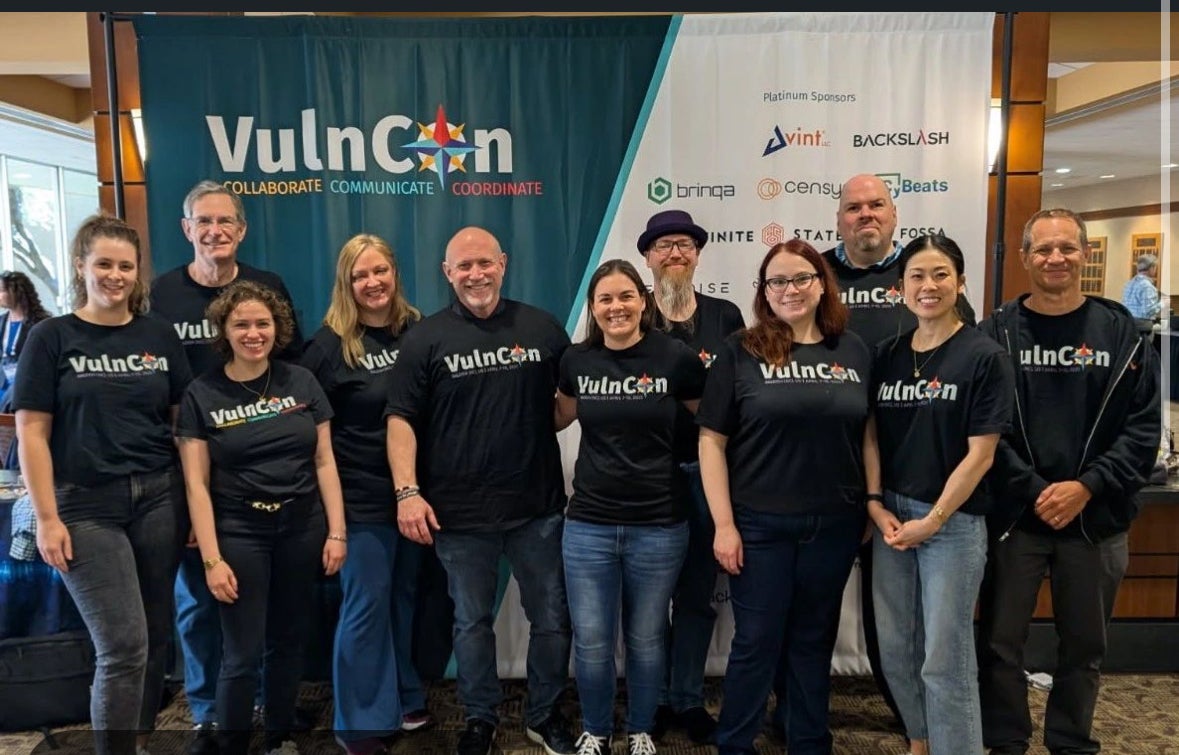
By Christopher Robinson (CRob), Chief Security Architect, OpenSSF
VulnCon 2025 has once again proven to be an essential gathering for security professionals, fostering collaboration, innovation, and progress in vulnerability management. This matches well with the OpenSSF continued championing for transparency and best practices in open source security. Practitioners from around the world gathered in Raleigh, NC, the week of April 7-10, 2025 to share knowledge, collaborate, and raise awareness of key issues within the global vulnerability management ecosystem. We wanted to share my key takeaways from this year’s conference and highlight some of the insightful contributions from our community members.
The Open Source Security Foundation (OpenSSF) seeks to make it easier to sustainably secure the development, maintenance, and consumption of the open source software (OSS) we all depend on. We work on this by fostering collaboration with fellow industry groups like the CVE Program and FIRST, establishing best practices like our recently released Principles for Package Repository Security guide, and developing innovative solutions like Open Source Project Security Baseline, or engaging in global cybersecurity legislation and public policy conversations with our Global Cyber Policy Working Group. Cross-industry collaboration and knowledge sharing is crucial to properly address major challenges by fostering innovation, knowledge sharing, driving sustainable growth, and maximizing the impacts of our collective efforts.
The OpenSSF was thrilled to have a notable presence at VulnCon with significant representation from our Vulnerability Disclosures Working Group and other projects throughout the week. Our engagement in this event illustrates our commitment to community engagement and further supports our strategy to actively engage with the community and facilitate collaboration across industry stakeholders to sustainably address open source software security challenges effectively with transparent operations and governance.
The partnership between the OpenSSF and the FIRST PSIRT SIG showcases how industry and upstream effectively work together on these issues that have global impacts and how we’re better collectively collaborating to solve these complex and far-reaching challenges. Through our co-work on industry standards, and frameworks, or an event like VulnCon – we’re better together!
The inaugural VulnCon was a cross-industry effort that was held in March 2024. There were 360 security professionals in attendance, with an additional 239 participating virtually (599 total) with nearly 40 sessions given. 2025 saw a dramatic increase in the participants and volume of content shared! This year there were 448 in person attendees with 179 global friends watching and participating virtually (627 total). 294 organizations attended from 36 countries. The program itself almost doubled, adding a 4th full day of sessions and expanding the number of tracks provided up to 100 sessions. Of this, I am proud to say that the OpenSSF members provided over 16 sessions about our community’s work and 46 total sessions given by member representatives.
This year’s VulnCon featured an amazing docket of talks and workshops spanning the broad spectrum of vulnerability management, disclosure, and coordination. Open Source Software was discussed throughout the four day event, driving home to me how much influence and exposure upstream has on industry and public policy.
Here are a few of my key takeaways:
At the end of the day, security is about effectively managing risk and preparing for the inevitable threats that loom on the horizon. Events such as VulnCon or the forthcoming CNCF-OpenSSF SecurityCon allow experts to come together, share their hard-won wisdom, raise awareness of issues of concern, and collaborate on solutions to address security issues around the world.
The conversations at VulnCon reaffirm the importance of continued engagement in the security community. If you’re interested in contributing to the advancement of open source security, I encourage you to join the OpenSSF community.
Join the OpenSSF mailing list to stay informed about upcoming events, working groups, and initiatives.
For those who couldn’t make it, you can check out recorded content from VulnCon 2024 on YouTube and look out for the VulCon 2025 playlist to get a sense of the discussions shaping the future of vulnerability management. Thank you to all of our amazing community members who were able to come out and demonstrate the power of collaboration of our open source security community and partner with our peers and downstreams within industry, security research, and global governments.

